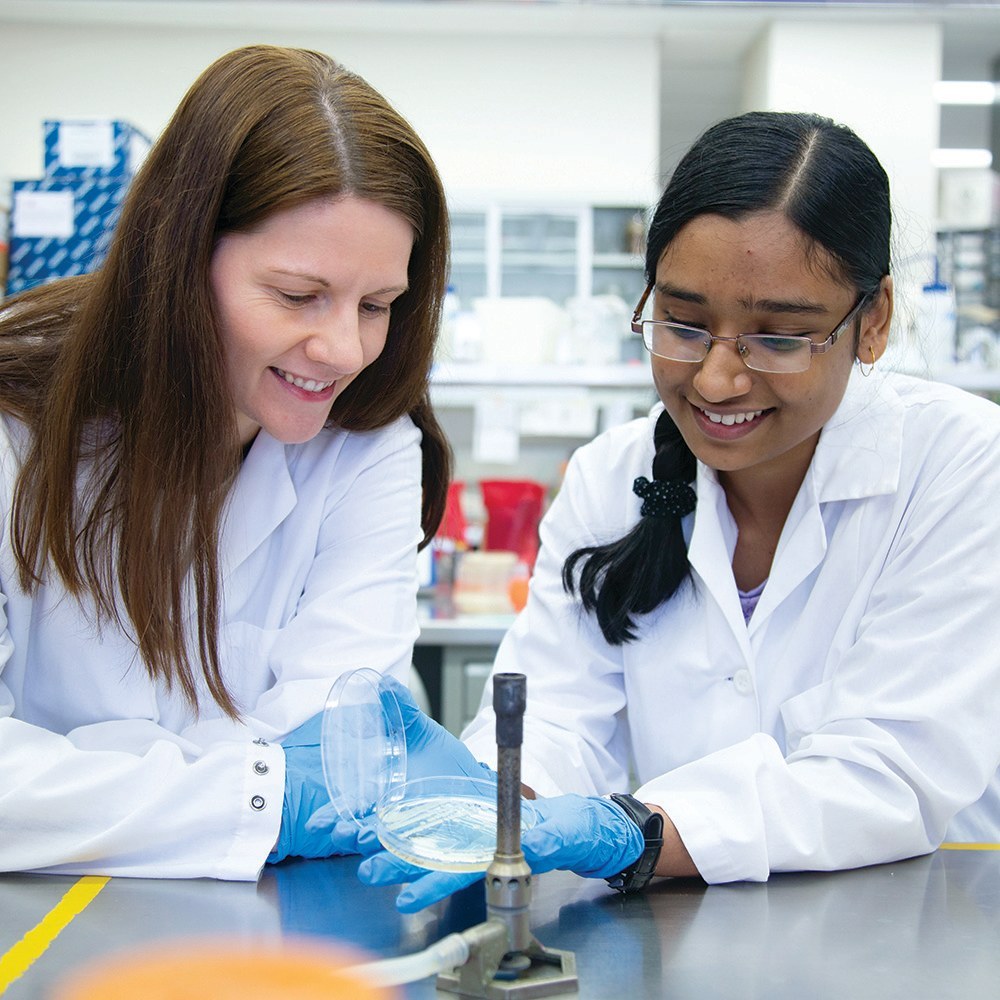Posted: October 4, 2019
Researchers encourage better monitoring of less-deadly foodborne bacteria.
Bacillus cereus bacteria cause nearly 65,000 foodborne disease cases per year in the United States. Employing advanced genetic-tracing techniques and sharing the data produced in real time could limit the spread of this bacteria, according to researchers in the college who implemented whole-genome sequencing during a pathogen-outbreak investigation in upstate New York in 2016.
"It is our hope that whole-genome sequencing of Bacillus will be done more often as a result of our research, as it allows us to differentiate between the various species of Bacillus and project the food safety risk associated with them," said Jasna Kovac, assistant professor of food science.
The project marked the first time researchers conducted whole-genome sequencing to investigate a Bacillus cereus outbreak to link isolates from human clinical cases to food. The outbreak, which lasted less than a month, stemmed from contaminated refried beans served by a small Mexican restaurant chain.
Because illness caused by Bacillus cereus typically resolves within days and outbreaks are self-limiting in nature, foodborne illness caused by members of Bacillus cereus are underreported. Although there have been reports of severe infections resulting in sudden patient death, isolates of the group linked to human clinical cases of foodborne disease typically do not undergo whole-genome sequencing, as is becoming the norm for other foodborne pathogens.
In this case, the New York State Department of Health coordinated the epidemiological investigations and determined that a production treatment plant in Pennsylvania produced the contaminated refried beans. The researchers sequenced the majority of Bacillus cereus isolates, from both food and humans, at the Penn State Genomics Core Facility.
Whole-genome sequencing is a fairly new approach in food safety, Kovac pointed out. "It was piloted for investigations of Listeria outbreaks in 2013, and we have learned that using this technique allows for a faster detection of epidemiologically linked isolates and sources of food contamination that help stop outbreaks early on."
--Jeff Mulhollem
Features
Breaking the Silence on Farm Stress
Farming has always been a demanding profession, but today's farmers face unprecedented pressures that can severely impact their mental health.
Biting Back
Research Targets Vector-Borne Diseases to Save Lives
Leading Forward
Ott brings deep connection to role of dean.



